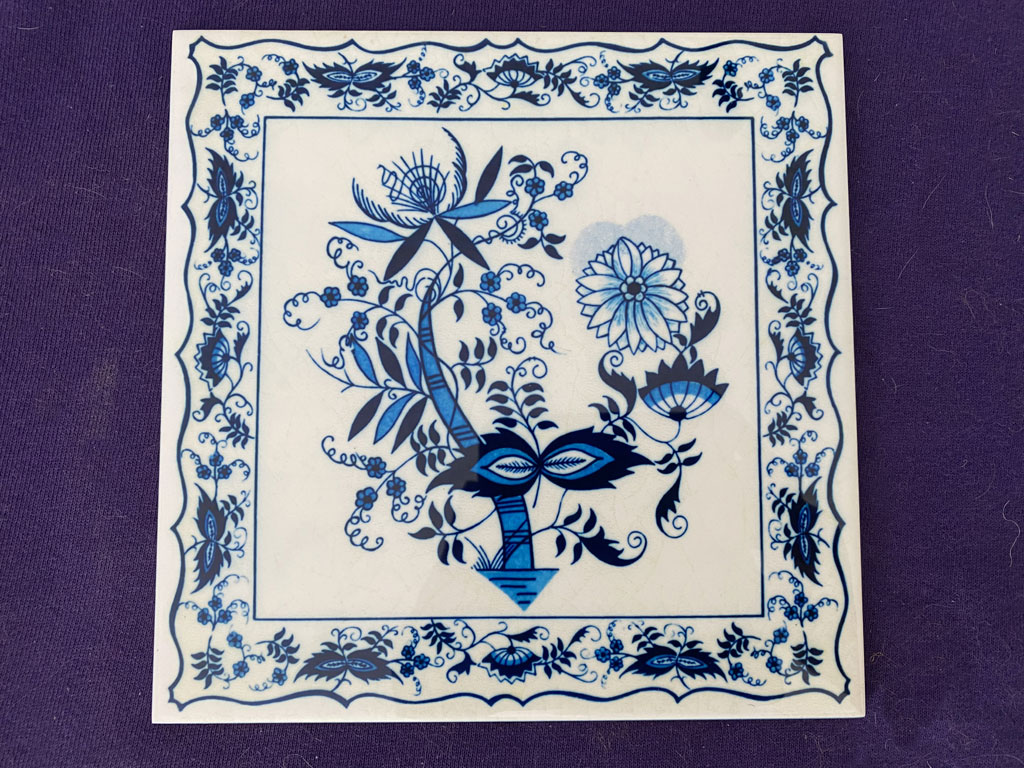

Catalog Blue and White Overview How to Order Tile Site Map Search FAQ


I have praised everything that exists,
but to me, onion, you are
more beautiful than a bird
of dazzling feathers
~Pablo Neruda, Ode to An Onion

Both William Morris and Dante Gabriel Rossetti had blue and white china collections. This gives us an idea of how popular blue and white ware was. Rossetti's collection was largely Chinese porcelain, which Morris's substantially larger collection, also included delftware and Islamic patterns. (You can see parts of their collection below. Morris incorporates some Islamic (Persian, as it was called at the time) tiles and Portuguese Azueljos, but Rossetti's does not appear to. Chinese blue-and-white was copied in Europe from the 16th century on but European manufacture started at the German company Meissen as early as 1707.

Dante Gabriel Rossetti's blue and
white china collection

William Morris, Kelmscott
blue and white china collection
This Blue Onion pattern, was first made in China, with pomegranates instead of onions. The German factory, Meissen, created it as Zwiebelmuster in 1740. It was very popular, so much so that in the 1870's, the Wedgewood pattern was called "Meissen". Messein still produces its Blue Onion today.
Since the late 19th century, other companies have copied it. The version most popular now, known as Blue Danube, comes from Japan.

Several German versions of Zweibelmuster (Blue Onion) tiles, produced around 1900.
The tile I've based this on was found by my mother-in-law some fifty years ago, and was passed on to me by her daughter, Elizabeth. The color on the tile has aged and it is now a rich cream. The original color was surely white -- how beautifully some of us age.

Classic six-inch square tiles, of course, and also an eight-inch version. In cream or warm white.
6 inch square tiles: $68 each
8 inch square tiles: $85 each
How to Order Classic Blue Onion
Site map (if you know the name of the tile)